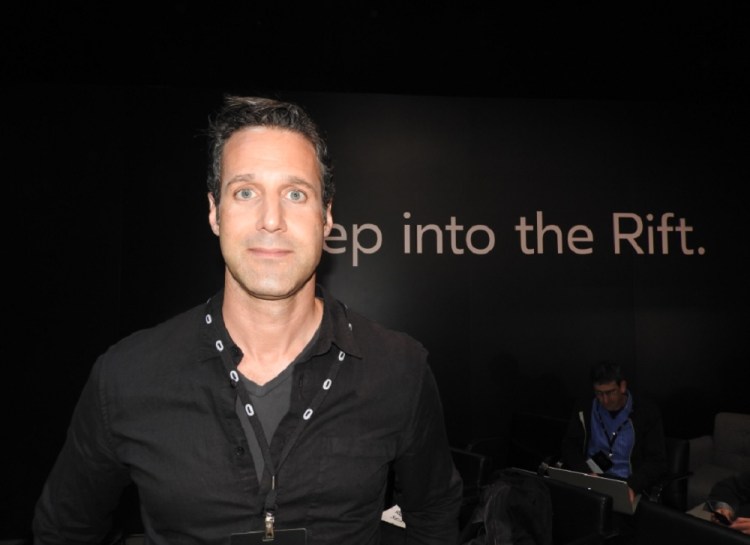GamesBeat: Do you have a way to get multiple players in the same experience?
Rubin: Absolutely. If you come see the new controllers, the positional controllers, at E3, it’s a two-player experience. You’ll have another person in the room with you virtually giving you a demonstration. They’re 20 feet away in another booth using an identical setup. So absolutely. That works really well. That’s what Palmer was saying. When you start saying things like “Pick up the lighter” and pointing, you’ll see their finger and think, “Oh, there’s the lighter.” With the positional sound it’s just fantastic. You can throw things at them and bat them back.
GamesBeat: One final thing is sound. Why is sound so important?
Rubin: This is an easy one. VR is taking over your inputs, your senses, and creating a feeling that you’re somewhere else. In the case of Oculus, the eyes are the key that we’re going after. We’re not going after your inner ear. We’re not going after smell. But we are going after the eyes. That’s key.
We thought we had sound years ago, when we created stereo and then surround sound and all these technologies. Actually, that never really reproduces sound like we experience it in the world. There’s a lot of reasons for that. One is, we don’t know where your head is or what’s going on with your head. Sound plays the same regardless of what’s going on with your head.
VR brings an entirely new capability to capture perfect 3D sound. We know where your head is. We can model your ears into the sound and manipulate the sounds based on that. It’s a long technical way of saying this: if someone walks up behind you and says, “Boo!” you know exactly where they’re standing. If some ship flies over you and you can’t see it, you still know it’s up there. When you walk into a room and there’s dripping water behind you, you know the dripping water is behind you. If you hear a tiger growl, you know it’s in the next room to the left. You can feel the depth, how far it is, the directionality, the space around you. We literally model your head, so that subtle changes from behind your ear and in front of your ear all work.
All of a sudden sound got reborn in VR. We’re going way in with 3D sound. You can’t have a 3D experience visually without the 3D sound to back it up.
GamesBeat: What are some of the way-out things you think people will eventually create as far as only-in-VR experiences?
Rubin: I’m looking at the next year or two. The way-out stuff, I think the next year or two is going to teach us the foundation of what we need to get to that. It’s like asking Apple, “You’re about to launch an app store. What do you think it’s going to do?” Someone is not going to answer, “Oh, it’ll get rid of hotels and taxis through Uber and Airbnb.” The functionality was placed and then people came up with the brilliance based on that.
We’re giving people an incredible tool set to develop with. It’s going to take a while for us to figure out what brilliance that leads to.
VentureBeat's mission is to be a digital town square for technical decision-makers to gain knowledge about transformative enterprise technology and transact. Learn More



